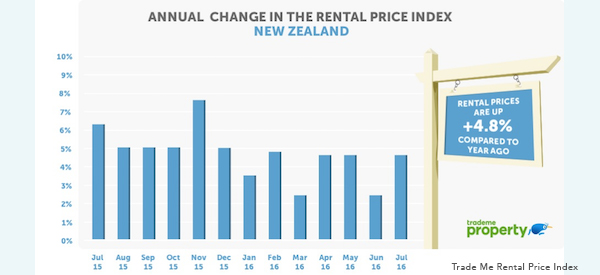Tenants
Advice for Tenants When Renting a Property
At some stage in your life, be it short term or long term, you will probably end up renting a home to live in. This will probably be done through a property manager or private landlord.

At some stage in your life, be it short term or long term, you will probably end up renting a home to live in. This will probably be done through a property manager or private landlord. Usually the manager or landlord will focus in securing a good outcome for the owner of the property and will not go out of their way to make sure that the property in question ticks all the boxes with regards to your criteria as a tenant. It is solely your responsibility as the tenant to ensure the property you are applying for suits you. If the owner decides to accept your application to rent a property and you sign a tenancy agreement, then you have various obligations to meet so you can’t just change your mind.
Your tenancy will be governed by a Tenancy Agreement and The Residential Tenancies Act. After decades of renting properties to tenants on behalf of property owners we have put together this list of important issues for you as a tenant to consider when choosing the right property for your family. This will hopefully reduce the potential for problems with landlords and save you time and energy.
Most tenants main criteria when looking for a property is location. You should narrow down locations that you wish to consider prior to beginning your search to save you time. Auckland is a big city so there is no point in viewing a property unless you are happy with the location. Key points to consider when considering an area is the proximity to local schools, transport, shops and other infrastructure, as well as proximity to your family and place of employment.
What should I expect from a suburb?
Presentation of the neighbours, their vehicles and properties give you an indication of the types of people that live in each street. A drive-by down the main roads will show you what facilities/amenities and goods and services are available in the area.
How do I research a suburb?
You can use technology to your advantage by using Google maps to assist you with your research. Google maps provide a map view and also a satellite image view so you can check out photos of the location via the internet prior to inspecting. Never make a decision on a specific area based on what a landlord says eg. “This is a good street” as you need to satisfy yourself to that regard! You can also check schoolzones.co.nz to find out more about the local schools. Reading local community newsletters will also educate you on the area and what it has to offer. You can read community newspapers online at stuff.co.nz/auckland .
You can use various websites to find and compare rental properties. Try www.allenrealty.co.nz, www.trademe.co.nz or www.realestate.co.nz.
What rent will I pay?
The location will influence the majority of the rent. Some of the rent will be influenced by the amenities and condition of the specific home. Market rents are affected by demand and supply in each suburb so if rental properties are in high demand in that area you can expect to pay more. As a general rule, the closer a property is to the city centre the higher the rent. You can view average rents for most Auckland suburbs on the Allen Realty website www.allenrealty.co.nz
When you finally choose suburbs to concentrate your search on there are specific issues you should look at. This will ensure that you end up with a property that ticks all your boxes that you will be happy with long term.
- Security: Check locks on all doors and windows – most properties are rented ‘as is’ so property owners won’t necessarily be obligated to upgrade something.
- Maintenance: Assess what you will have to maintain as part of your tenancy eg. whose responsibility is the lawns and gardens? Hedges should generally be a joint responsibility with tenants and owners. Do you maintain the swimming pool or does the owner? Who sweeps the driveway or maintains any common areas?
- Insulation: Make sure that you are satisfied with the property and confident that it will be warm and dry. Look for signs of discolouration on flooring, paintwork, and window coverings (curtains/nets) which show evidence of any moisture. Remember that most rental properties will suffer from some degree of moisture. Make sure properties have adequate ventilation. If you can open windows regularly and operate fans or heat pumps then this will assist with airflow and reducing moisture.
- Noise: The location of the property will affect the amount of noise you should expect. If a property is on a main road or in the CBD you should expect a certain amount of associated noise. If there is a building site next door you should also expect some noise. Often apartments in the CBD have double glazing which will help reduce this issue. The owner of the property cannot directly affect or change this aspect of a property so it is important that you do your homework.
When you choose a property to apply for and a landlord accepts your application then you will have to negotiate a tenancy. The following issues need to be negotiated first, as once you sign a tenancy agreement it will be too late to change your mind.
- Tenancy Term: The landlord and tenant should agree when the tenancy starts and if it is a fixed term (eg. 6 or 12 months) or a periodic tenancy (month to month).
- Agreement in Writing: All tenancy agreements should be in writing and should confirm the obligations of all parties including and not limited to the bond, rent due dates etc.
- Bond: Once you pay the bond then the landlord is required to lodge your bond with the Department of Building and Housing within 23 working days of receipt. You should receive written notification of the lodgement of your bond within 5 weeks of the start date of your tenancy.
Tenants
Coworking Countdown – 4 Things to Prepare Before You Move In

The coworking scene has done anything but slowed down. Coworking spaces in Auckland alone vary between your upmarket, corporate office to the trendier, chic ones. Certainly, investing in this type of commercial real estate has never been more attractive. There is a space for everyone in this landscape and for businesses looking for new workspaces there’s not only variety available, there’s options at an affordable price.
When a business has finally found an office, in one of these buildings they have not only found a workspace, they’ve also found community as well. One coworking space – Servcorp – is a good example of the way work and networking have intersected to provide business with the chance to grow. This new way of leasing premises is highly attractive to the leasee and the property owner. Here are some tips for moving into a new coworking space, so the business can prepare to maximise their working experience.
Continue reading to learn what you can do to prepare for your move to your new coworking space to ensure the move is as seamless as possible.
Purposeful Coworking
Coworking presents professionals with the chance to use the space to just work or to build on their professional network. Before getting comfortable in your new office, sit down and take inventory of the tasks beyond work that you would like to accomplish. When writing down your goals and objectives, keep in mind the types of activities that you would like to engage in the space.
Of the many activities, formal networking events and community social events are the types you want to pay attention to if you plan to use the space to build a social network. Not that you have to be out and about every night, but scheduling time to promote your business is one way to maximise the coworking space. Ultimately, if the purpose of coworking is to build a networking platform or to grow your business, find ways to incorporate the more social aspect of the space.
Tool Of The Trade
Another thing that professionals moving into a coworking space should prepare for is knowing what amenities the space provides. Standard spaces fit out the office with exceptional IT services and office equipment, but other amenities include programs and conferences that help teach entrepreneurs how to build their businesses. Before moving into your space, consider checking out all the perks of working in your coworking space.
Moreover, make sure you know what is available for use in the office, so as to bring supplies if necessary. While staplers and other office products come standard in a conventional office, some spaces might not make this available to employees. On a larger scale, make sure there is a receptionist available, and if not, know exactly how to retrieve any messages.
Change Of Business Address
Before leaving your conventional or home office, make sure that clients and other important people know your new location and phone number. One simple way to do this is to email clients of your relocation as to avoid any mix-ups. Furthermore, make sure to forward any business mail to your new location, as to avoid missing important parcels. Finally, make sure you know the building’s office hours for scheduling appointments.
Event Calendar
Check out the coworking space’s event calendar. In addition to the numerous networking opportunities in the day, many coworking communities hold events to get the professionals to engage with each other. Make an exerted effort to attend at least a few of the events every week to raise your business’s profile. You never know what opportunity awaits when engaging people from your profession and others.
Preparing And Putting Coworking To Work
Coworking makes moving effortless simply by alleviating much of the work associated with relocating. You can, however, maximise your move by putting together an agenda of how you plan to use the work to benefit your business. Your plan will help you use your space more effectively for building a platform for business success.
Tenants
Auction Site For Renters
New Zealand will soon see the rise of a new auction site for renters. Just in on stuff.co.nz Rentberry has confirmed they will be launching here and in Australia. The online service offers renters the opportunity to bid for rental properties. Landlords set the ‘reserve’ or rent level they hope will generate lots of prospective tenants interest and then the bidding war takes off.

New Zealand will soon see the rise of a new auction site for renters. Just in on stuff.co.nz Rentberry has confirmed they will be launching here and in Australia. The online service offers renters the opportunity to bid for rental properties. Landlords set the ‘reserve’ or rent level they hope will generate lots of prospective tenants interest and then the bidding war takes off. Landlords get the final say on whom is the successful applicant and while they may review the highest bids first, they won’t be choosing the tenant just based on what they’re prepared to pay.
An Auckland property management company spokesperson said common-sense will prevail among Landlords. Securing long term tenancies with tenants that have good credit histories and references will remain the top priority. Prospective tenants information is available to the Landlord in the service so they can select the tenant without delay.
Rentberry will provide more transparency of the selection process with prospective tenants and Landlords learning what the true market value is for their property. This is a positive move for investors especially those who are new to the rental market and Landlords whom self manage their rental properties and may currently be charging more or less rent.
There has been some healthy criticism of the service even in it’s infancy. In America affordable housing advocates are angered by the service and tenant groups in Australia are wary that the service will push up prices.
Rentberry has been operating in the USA since 2016 and is currently expanding into 1000 cities there. It’s focus is on renting Apartments and this is where we see the service take off in our neck of the woods in our main centres in New Zealand.
This blog article was written for PropertyBlogs by Mobilize Mail.
Tenants
Tenants Let Off With 4.8% Increase
Weekly rents rose just 4.8 percent in the twelve months to July 2016 according to Trade Me Rent Price Index. Tenants will be relieved Landlords are being realistic and not keen on hiking rents arbitrarily. Property sales have slowed and the average asking price has dropped significantly up ten percent since July 2015.

Weekly rents rose just 4.8 percent in the twelve months to July 2016 according to Trade Me Rent Price Index. Tenants will be relieved Landlords are being realistic and not keen on hiking rents arbitrarily
Property sales have slowed and the average asking price has dropped significantly up ten percent since July 2015. Of particular interest is the slow down in property asking prices in Auckland where a typical property listed in June was just $3,750 less than the asking price in July. According to this article Investors are buying most of the houses.
In Auckland City and on the North Shore investors have purchased 50 percent of the properties on the market. A North Shore and Auckland City property management company spokesperson said investors are listing new properties with them. In Auckland City it’s mostly apartments and there’s high demand for quality living quarters downtown.
“In July 2011 New Zealand’s median weekly rent was $350 a week, that has risen by $90 a week over the past 5 years, while at the same time the increase in the average asking price of a typical New Zealand property has risen by $200,000 an increase of 51 per cent.”
While there’s the odd sensational article on ‘greedy landlords’ hiking rents to unprecedented levels evidence proves otherwise and tenants are the winners.
In the regions there has been some catch up with rents rising by double digit percentages in Northland, Manawatu, and Marlborough. However urban average rents have remained stagnant.
This blog article was written for PropertyBlogs by Mobilize Mail.
-

 Management5 years ago
Management5 years agoHome Insulation Requirements
-

 Investment5 years ago
Investment5 years agoAnother date NZ property investors are dreading
-

 Accounting & Finance5 years ago
Accounting & Finance5 years agoLow Interest Rates Winners and Losers
-

 Build5 years ago
Build5 years agoHow to Choose and Purchase a Suitable Property to Subdivide
-

 Management6 years ago
Management6 years agoAttracting More Business Travellers To Your Auckland Airbnb Property
-

 Investment6 years ago
Investment6 years agoWould You Be a Landlord in 2018?
-

 Tenants6 years ago
Tenants6 years agoCoworking Countdown – 4 Things to Prepare Before You Move In
-

 Renovations6 years ago
Renovations6 years agoFive easy steps to boost the appeal of your home








